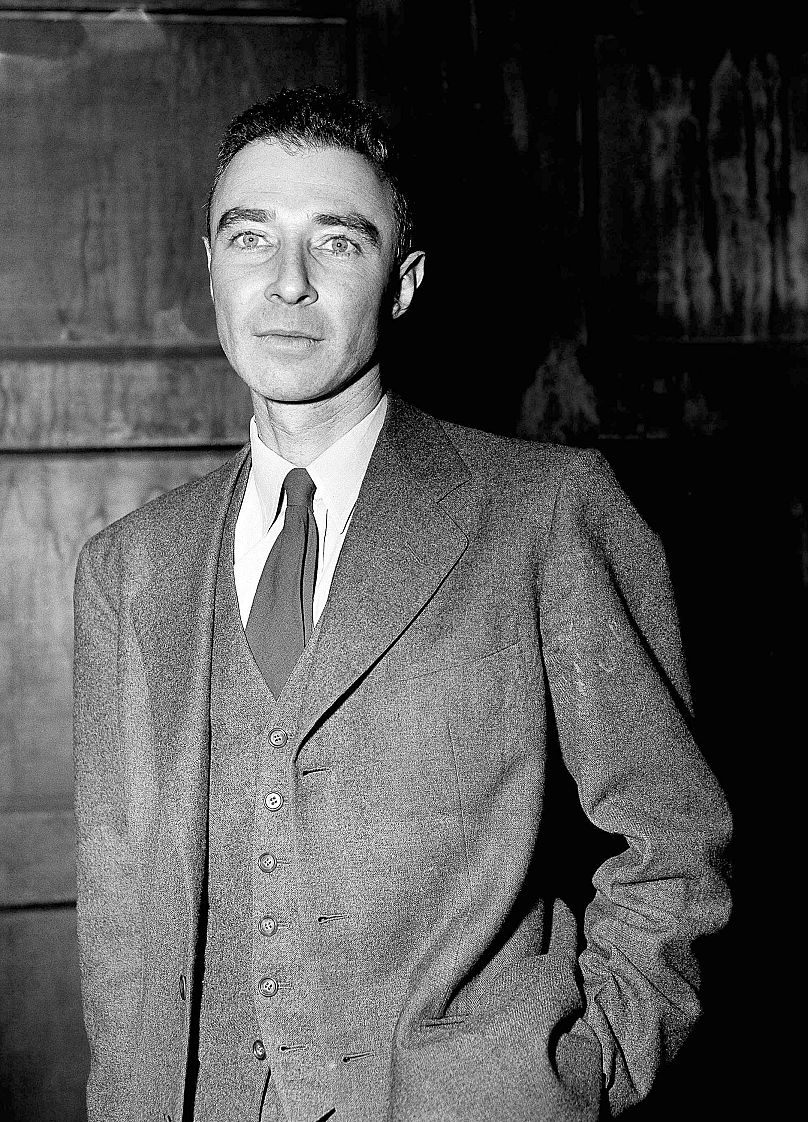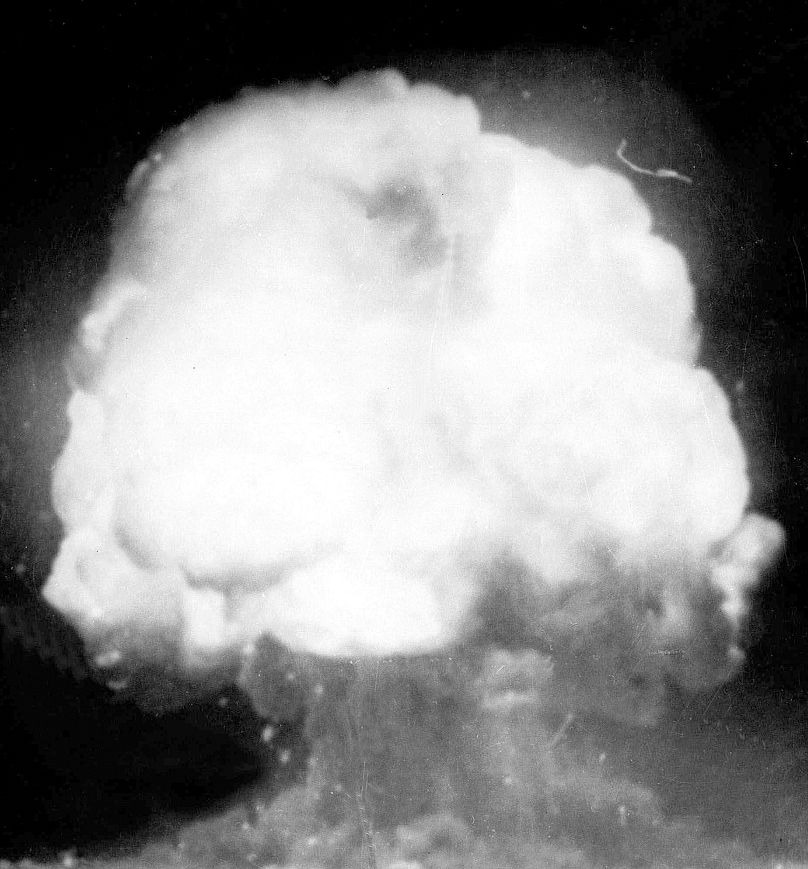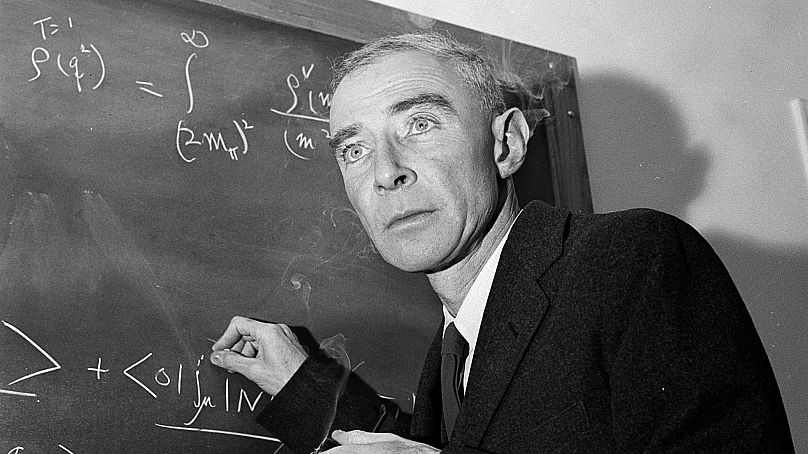The second half of the legendary Barbenheimer event is far more unknown than his fantastic and plastic equal Barbie. We take a look at the true person behind 'Oppenheimer'.
For the past few weeks, it’s seemed like the only thing that mattered in the world of film was the upcoming Barbenheimer event. The dual release of Barbie and Oppenheimer on 21 July has captivated people by the two films’ compelling qualities and stark contrasts in turn.
Of course, a live-action adaptation of Mattel’s Barbie doll written and directed by indie-darling Greta Gerwig was always going to be a fascinating project. Barbie will attract an audience thanks to the scale of the IP behind it. The fact that mumblecore cinema legend Gerwig (Frances Ha, Lady Bird, Little Women) is what will hopefully make it actually good.
Oppenheimer on the other hand is trading on the status of the talent behind it alone. With auteur director Christopher Nolan (Inception, Interstellar, The Dark Knight, Memento) behind the screen and Cillian Murphy, Emily Blunt, Florence Pugh, Matt Damon and Robert Downey Jr. in front, there will certainly be butts in seats when it opens concurrently.
But who exactly is J. Robert Oppenheimer, the theoretical physicist at the centre of Nolan’s latest film? To many, he’s the man credited with the invention of the atom bomb. While that’s a pretty dramatic statement in itself, it’s not immediately obvious how that will make a dazzling piece of cinema. Sure, bombs are exciting stuff. But theoretical physics isn’t as cinematic as, say, the Barbie Dreamhouse.
In Oppenheimer, he will be played with trademark searing blue-eyed intensity by Irish actor Cillian Murphy. Looking at pictures of the two, it’s not a half-bad likeness. Before you go see the film, here’s what you should know about the real Oppenheimer.
Who was J. Robert Oppenheimer?
Julius Robert Oppenheimer was born in New York City on 22 April 1904. His parents were non-observant German Jews who had emigrated to the US in the late 19th century. The family grew to be wealthy in New York and Oppenheimer grew up in affluence and went to study chemistry at Harvard.
At Harvard, Oppenheimer pivoted to physics. From there he studied at the University of Cambridge in the UK and the University of Göttingen in Germany. In Germany, he studied under Max Born, one of the key physicists in developing quantum mechanics, while making friends with many other big names in the field, including Werner Heisenberg, Wolfgang Pauli, and Paul Dirac.
He graduated from Göttingen with a PhD in 1927, aged just 23. Together with his tutor, he published a paper on the Born-Oppenheimer approximation, a landmark study in how to calculate atom dynamics.
It was at Cambridge where the first peculiar incident in Oppenheimer’s life takes place. It’s reported that, after taking a dislike to his tutor Patrick Blackett, he attempted to kill him with a poisoned apple. Despite the university finding out, nothing came of the incident.
After his time studying, Oppenheimer went on to be a successful career physicist, working for multiple universities in the US and Europe on quantum mechanics alongside famous names like Albert Einstein.
Oppenheimer and World War Two
In the 30s, before the Second World War, Oppenheimer became conscious of the growing Nazi threat. He put away three per cent of his salary after 1934 to help German physicists flee their country. He also associated with communist thinkers, a decision which would lead to the FBI keeping a file on him.
It was also in the 30s that he had his two most significant relationships. First with the student Jean Tatlock, who is played by Florence Pugh in the upcoming film, and then with Katherine Puening, played by Emily Blunt. When they married in 1940, Oppenheimer was Puening’s fourth husband.
Arguably, the most consequential part of Oppenheimer’s life begins on 9 October 1941, when President Franklin D. Roosevelt approves a programme to develop an atomic bomb, two months before the US enter WWII.
In September 1942, Oppenheimer joins the Manhattan Project. Leading a team of physicists at the Los Alamos Ranch in the New Mexico desert, Oppenheimer sets about developing the atom bomb.
On 16 July 1945, the first nuclear explosion takes place. The Trinity Test was named by Oppenheimer from a verse in the Bhagavad Gita, a piece of Sanskrit scripture that he was obsessed with.
Despite his physicist occupation, Oppenheimer was always intrigued by mysticism, particularly from the Bhagavad Gita and another Sanskrit text, the Upanishads.
His famous quote after the first nuclear test, “I am become Death, the destroyer of worlds,” is also taken from the same source. Oppenheimer appreciated the scale of what he had helped create. Barely a month later, atom bombs were dropped on the Japanese cities of Hiroshima and Nagasaki, killing between 129,000 and 226,000 people.
After the war
Hiroshima and Nagasaki made Oppenheimer a household name in the nuclear arms race, appearing on Life magazine.
He continued to advise the US as the Soviet Union developed their competing nuclear arsenal, and often pushed for defensive measures, over making increasingly more deadly weapons.
Despite his role in helping the US in the war effort, Oppenheimer was put before the House Un-American Activities Committee in the 50s for his communist associations in the 30s. He was stripped of his security clearance.
Just over 10 years later, Oppenheimer died of throat cancer on 15 February 1967, aged 62.














